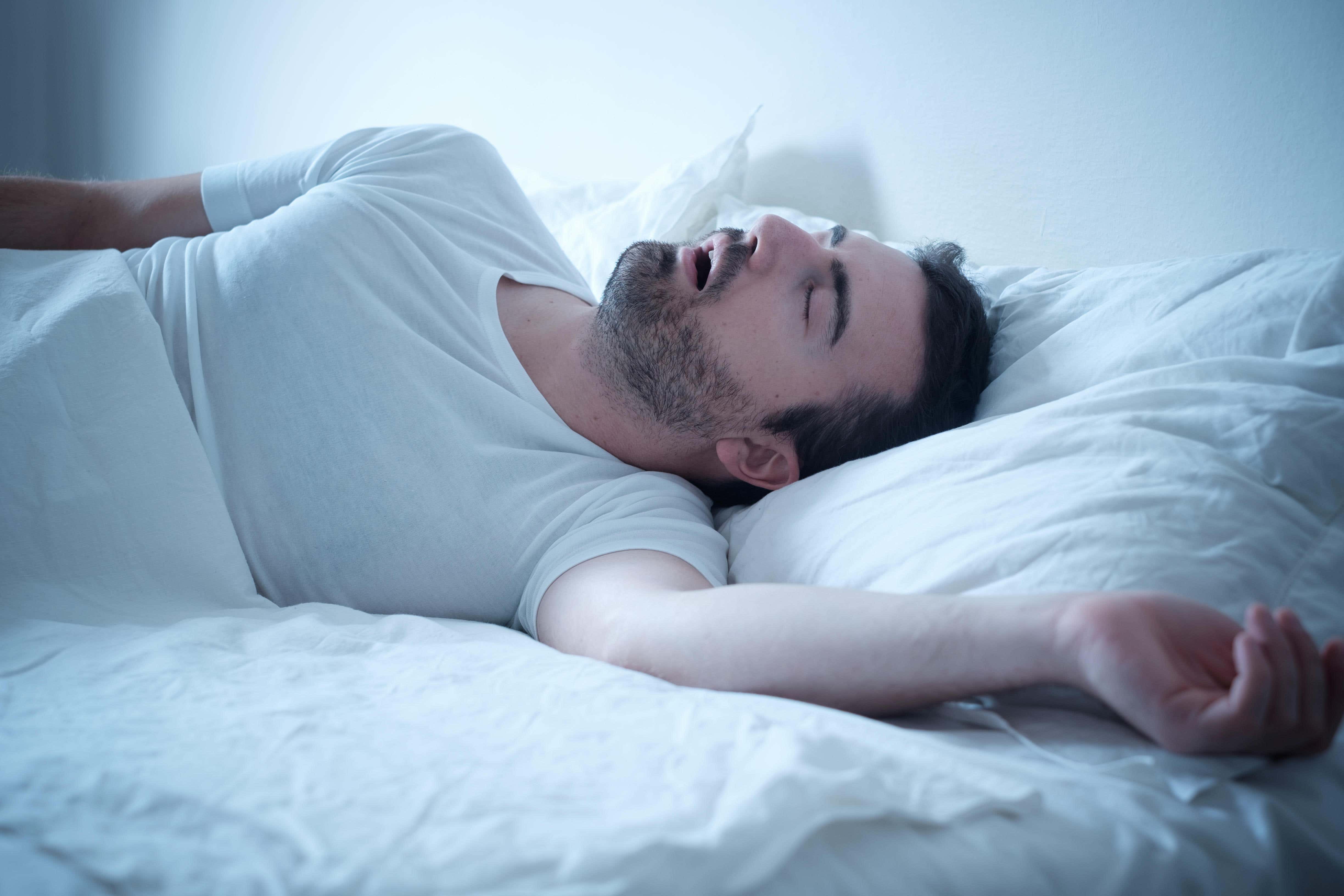Snoring increases your stroke risk – here’s how to stop
Sleeping issues can cause much greater health problems, according to new research.

Your support helps us to tell the story
From reproductive rights to climate change to Big Tech, The Independent is on the ground when the story is developing. Whether it's investigating the financials of Elon Musk's pro-Trump PAC or producing our latest documentary, 'The A Word', which shines a light on the American women fighting for reproductive rights, we know how important it is to parse out the facts from the messaging.
At such a critical moment in US history, we need reporters on the ground. Your donation allows us to keep sending journalists to speak to both sides of the story.
The Independent is trusted by Americans across the entire political spectrum. And unlike many other quality news outlets, we choose not to lock Americans out of our reporting and analysis with paywalls. We believe quality journalism should be available to everyone, paid for by those who can afford it.
Your support makes all the difference.People who have sleep issues may be more likely to have a stroke.
A new study revealed getting too much or too little sleep, taking long naps, having poor quality sleep, snoring, snorting and sleep apnoea – where breathing is disrupted – can increase risk, significantly so for anyone suffering with more than five of these symptoms.
Snorers were almost twice as likely as non-snorers to have a stroke.
Our results suggest that sleep problems should be an area of focus for stroke prevention
People who slept for more than nine hours, or less than five hours, were more likely to have a stroke than people who had an average of seven hours, researchers found.
The findings, published in the Neurology journal, do not show that sleeping problems cause stroke, but they show an association.
Study author Christine McCarthy, of the University of Galway in Ireland, said: “Not only do our results suggest that individual sleep problems may increase a person’s risk of stroke, but having more than five of these symptoms may lead to five times the risk of stroke, compared to those who do not have any sleep problems.
“Our results suggest that sleep problems should be an area of focus for stroke prevention.”
The study involved 4,496 people: 2,238 who had a stroke and 2,258 who did not.
Subjects were asked about their sleep behaviour, including how many hours of sleep they got, sleep quality, napping, snoring, snorting and breathing problems during sleep.
The study indicated that people who snored were 91% more likely to have a stroke than those who did not, so how can you stop yourself snoring?
5 ways to stop snoring
Snoring is caused when the air travelling through your nose, mouth or throat is partially obstructed during the night. Try these tactics to help kick the habit.
1. Avoid alcohol
Boozy nights out often lead to sleepless, snore-filled slumber. Alcohol has a sedative effect, which relaxes the jaw and throat muscles, making an obstruction in your airway more likely. Avoid booze if you want to stop snoring.
2. Sleep on your side
Silencing your snores could be as simple as adjusting your sleeping position.
Laying on your side, rather than your back, can help to reduce snoring, as this can prevent the base of your tongue collapsing into the back wall of your throat. It’s not guaranteed, but should certainly help.
3. Try a snoring pillow
There are some products you can buy, which are specially designed to prevent snoring.
Sleeping on a pillow which sufficiently supports your head and neck can help, as it can ensure your head is propped up enough to prevent your airways becoming blocked.
4. Stay within a healthy weight range
Excess fatty tissue around the neck and poor muscle tone can contribute to the problem.
Snoring is more common if you’re overweight, so taking steps to reduce excess pounds can help to reduce the chances you’ll start making noise in the night.
5. Keep a sleep diary
A sleep diary is a great way to help you identify what factors in your life are helping and hindering your sleep and snoring.
Make a note of sleep times, how many times you’re waking up in the night, the food and drink you’ve consumed throughout the day, your amount of screen time, and your day’s activity.
After keeping a record of your sleep for a month, you’ll be able to see any trends, including activities during the day that are impacting you at night. Using this information, you can then make lifestyle changes to help tackle the issue.